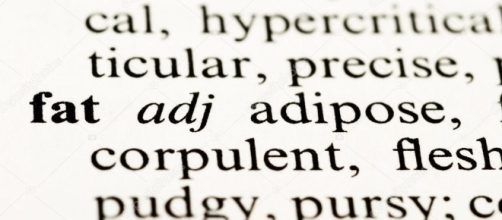“Does this dress make me look Fat?” Ah, an age old trick. Let's say, hypothetically, you are honest: it is not a very flattering dress. Fat shaming! You just fat shamed, a faux pas for our easily triggered millennials.
Today’s young people are characterized by their consistently used phrases: “check your privilege,” “feminist,” “consent,” “the gender binary,” and “triggered,” in order to maintain what is considered “PC,” politically correct. And while each of those words carries its own set of modern rules and purposes to serve the greater good of our progressive society, they seem to skip over the more simple words, neglecting the root of a problem that many are working to fix.
Unfortunately, despite our seemingly progressive steps forward, we have forgotten that although we have gained a new vocabulary with complex definitions, it is the older, more commonplace words that continue to preserve a society we claim to no longer support.
Problems with the definition of "fat"
Going back to one of the most simple words in the English language, the Word “fat” is defined by Merriam-Webster as, “having a lot of extra flesh on your body.” This is a seemingly neutral sentence, but soon the word is given a negative connotation through its example sentence: “I can't believe I've let myself get so fat.”
Colloquially and formally, “fat” is considered an adjective, but in the context of people, it should be a noun.
For clarity, you wouldn’t say just because you have hands, that you are hands. Therefore, it would be equally incorrect to say people are fat, simply because they have fat.
What is wrong with fat? And why have we historically placed it outside the physical ideal? The notion of placing a negative connotation on the word "fat" itself, especially in a supposed unbiased, academic setting like a definition, reveals a social problem that is ingrained in our vocabulary.
The Body Positivity Movement
The #bodypositivitymovement is working against this mentality, to reverse the adverse effects of years of associating the word "fat" with a negative connotation.
This was recently seen when thousands of body-positive fans came to the defense of Lady Gaga when Twitter users began to comment on her body.
Many were saying that there is no such difference between fat or skinny, rather just different shapes and sizes, all of which deserve a positive connotation. Nonetheless, others were saying that Lady Gaga "dared to bare an imperfect stomach" The problem with this phrase is that it perpetuates the mentality that different or outside the "ideal body," is imperfect or negative.
The "fat" on your body is neither good nor bad, neither perfect nor imperfect, rather it makes you human and keeps you alive. It should not be associated with these ideas that are not only exclusive and elusive but also unimportant and outdated. In this progressive era, it is time to take a look at our vocabulary and discard the connotations placed on it by an outdated social construct.


